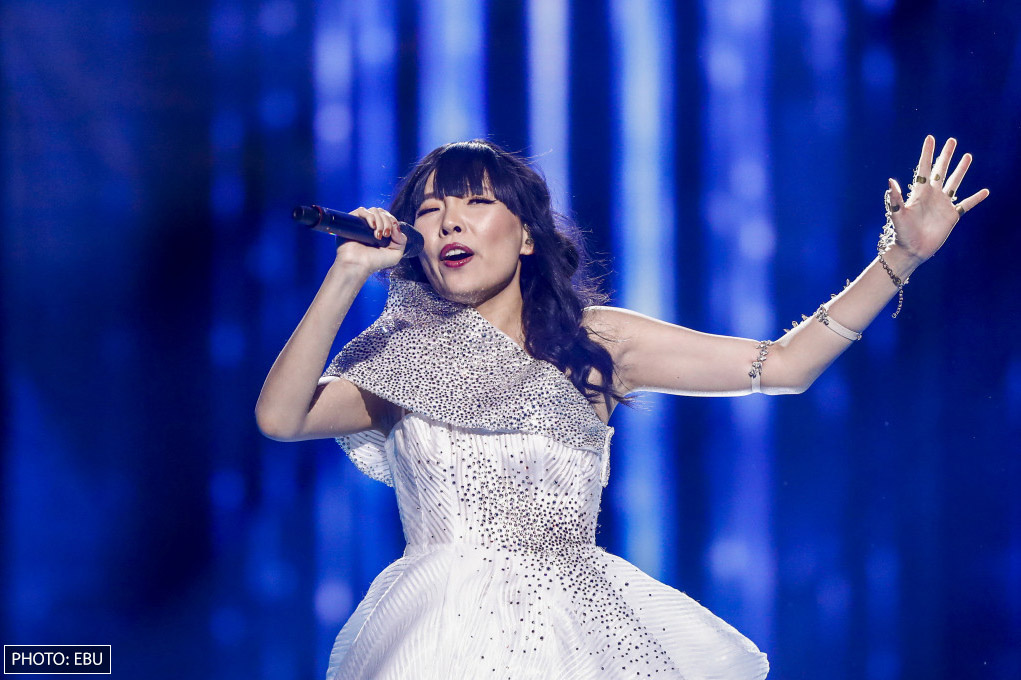
The Australian national broadcaster SBS has confirmed the country’s participation in Eurovision 2026, to be held in Vienna, Austria. The method for selecting Australia’s entry has not yet been decided.
The Australian national broadcaster SBS has confirmed the country’s participation in Eurovision 2026, which will take place in Vienna, Austria. Australia is the 25th country to express interest in participating in Eurovision 2026, following Albania, Azerbaijan, Cyprus, Denmark, Finland, Germany, Greece, Iceland, Israel, Italy, Latvia, Lithuania, Luxembourg, Malta, Montenegro, the Netherlands, Norway, Serbia, Spain, Sweden, Switzerland, Ukraine, the United Kingdom, and the host country, Austria.
SBS issued the confirmation earlier today (Wednesday) to the blog TV Tonight Australia, with the official statement later published via the blog’s X account, declaring:
“Yes, Australia will compete at Eurovision in Vienna”.
#SBSUpfront #SBS2026
Yes Australia will compete at #Eurovision in Vienna
— TV Tonight Australia (@tvtonightau) September 3, 2025
No additional details were provided regarding the Australian selection process. However, reviewing past selection methods reveals that only three entries (2019, 2020, and 2022) were chosen via the national final “Australia Decides”, while the other eight representatives (2015–2018, 2021, 2023–2025) were internally selected.
Australia at Eurovision: Strong Start, Rock Bottom and a Possible Comeback?

Australia has proven to be one of the contest’s beloved newcomers, yet its performance trajectory shows recent struggles. Out of ten appearances, the country qualified for the Grand Final seven times but has failed to do so in the past two years consecutively. Australia has won its semi-final three times – in 2016, 2019, and 2023 – but has never managed to secure victory in the Grand Final.
For its debut in 2015, Australia was invited by the EBU and the host country, Austria, as part of the Eurovision’s 60th anniversary celebrations. That year, Australia was granted special status, automatically advancing to the Grand Final and voting in both semi-finals. The country sent Guy Sebastian with the song “Tonight Again”, finishing in fifth place with 196 points.
Australia’s best result came in 2016 when Dami Im performed “Sound of Silence”, nearly winning the contest as she finished second with 511 points. The following years brought mixed results: 9th place in 2017 and 20th in 2018.
Between 2019 and 2023, an agreement between the EBU and SBS guaranteed Australia’s participation without requiring any invitation. For Eurovision 2024 and 2025, invitations were extended by Sweden and Switzerland, respectively.
In Eurovision 2019, held in Tel Aviv, Australia sent Kate Miller-Heidke with the song “Zero Gravity”, with which she once again finished in 9th place. Eurovision 2021 showed the first crack in Australia’s contest reputation when Montaigne became the first Australian representative to fail to qualify for the Grand Final. In 2022 and 2023, Australia gradually returned to its former success when Sheldon Riley finished in 15th place, and the band Voyager managed, for the third time, to win the semi-final for Australia, but – also for the third time – ended in 9th place in the Grand Final.
Eurovision 2024, held in Malmö, Sweden, marked the beginning of the downfall of the continent nation when Electric Fields with the song “One Milkali” failed to qualify and ended 11th in the semi-final, with 41 points. The following year in Basel, Switzerland, GO-Jo with his song “Milkshake Man” reached the very same result – 11th place in the semi-final with 41 points.
Eurovision 2026 is expected to be held at the very place where it all began for Australia — the Wiener Stadthalle in Vienna, Austria. Will Australia this year manage to close the circle and recover from the two difficult years it has been through? Only time will tell.
Australia at Eurovision 2025
“Milkshake Man” is the title of the song performed by singer Go-Jo, who represented Australia in the second semi-final of Eurovision 2025 in Basel, Switzerland. Australia did not qualify for the Grand Final and finished in 11th place out of 16, with only 41 points.
This was the second consecutive year in which the country failed to qualify for the Grand Final — a first in Australia’s Eurovision history — with two straight years ending in 11th place in its semi-final, each time with 41 points.

Email: [email protected]
Phone: +972-50-9441919
Ilay Gaist is a leading Israeli content creator and writer specializing in the Eurovision Song Contest. He is a well-known commentator with extensive expertise in the contest’s history, rules, and dynamics. His passion for Eurovision drives him to deliver rich, professional, and innovative content to his audience.
Ilay holds a bachelor’s degree in Arabic and has a multilingual background. He also engages in cultural research, with a particular focus on global culinary traditions and the evolution of local cuisines around the world.

